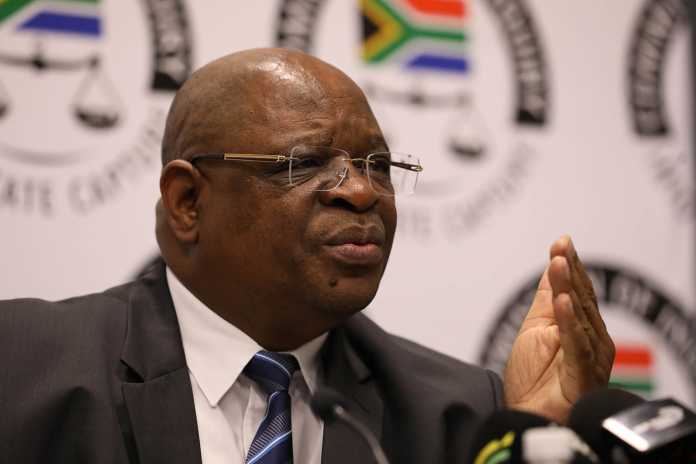Since the dawn of democracy, efforts have been made to ensure that the courts are institutions in which law is applied without fear, favour or prejudice.
It is the duty of the office of Chief Justice Raymond Zondo to ensure that the law is applied in this manner.
However, Zondo’s office appears to have taken the country back to the dark ages. Information that was easily accessible in the past is now difficult to lay a hand on.
Over the years, members of the public have been free to attend court cases as they please, including journalists, who use information derived from the courts to carry out their duties.
They do this to bring cases of public interest to the attention of members of the public who cannot always be in court.
Constraints relating to court attendance involve physical court room space, time, and/or physical distance, among others.
When a high-profile individual appears in court, the courtroom becomes packed to an extent that not all members of the public and media are allowed in. In addition to physical space constraints, there are also security considerations.
That is why court cases of public interest end up being beamed live on television, while they also enjoy print media coverage.
New age of technology
Advances in technology in recent years have also resulted in court cases being more accessible to members of the public on digital platforms.
People are now able to stream court cases of public interest on YouTube.
Even parliament has benefited from technological advances as sittings, as well as public engagements, are broadcast live on YouTube.
However, one of the major stumbling blocks is expensive data that makes it impossible for millions of low-income earners to stream video content.
The media and parliament should be commended for investing in technology that will make court cases and parliamentary proceedings accessible to the public.
However, technological advances appear to have flown over the head of the office of the chief justice and the Department of Justice and Correctional Services.
In the past, it was easy for a journalist to head to court and ask for court documents relating to a particular case from the clerk of the court.
A journalist would take documents, photocopy them, and refer to the content when writing a story of public interest.
Fifth Estate’s struggles
However, after the office of the chief of justice overhauled the court system and introduced new technology, it has become difficult for members of the Fifth Estate to access court documents.
This after Zondo’s office spent over R200-million of taxpayers’ money on the digitisation contract. One would have expected the system to optimally benefit the public.
Zondo’s office has also implemented a streaming service where court cases are followed on Zoom, a cloud-based video conferencing platform used for video conferencing meetings, audio conferencing and webinars, among others.
A colleague who was covering the urgent interdict case between Mthunzi Mdwaba and Finance Minister Enoch Godongwana last week complained raised concerns that there were moments in the proceedings on Thursday where only legal representatives were allowed.
The court documents, which are in the public domain, can only be accessible online by parties who are part of the court proceedings. This means journalists, academics and other members of the public are not allowed to have access to the court documents.
The court cases that take place on Zoom are also not easily accessible. When one wants to be part of the proceedings digitally, they must apply to the court.
Freedom of expression
Why when technology has advanced so much are the courts making it virtually impossible for journalists to access the information and report on it?
This is a serious assault on the freedom of expression, mainly because it is now difficult for journalists to report on some cases of public interest.
As an institution that promotes the law to be applied without fear, favour or prejudice, the office of the chief justice should consider using new technologies to promote freedom of expression.
This means Zondo’s office should emulate parliament by implementing systems that make all court papers and court hearings available online.
Failure to do so raises questions and suspicions on why Zondo’s office has used taxpayers money to make some court cases, especially those which involve politicians and government departments, to be conducted in secret.
- Sibanyoni is Sunday World digital news editor and business news journalist



